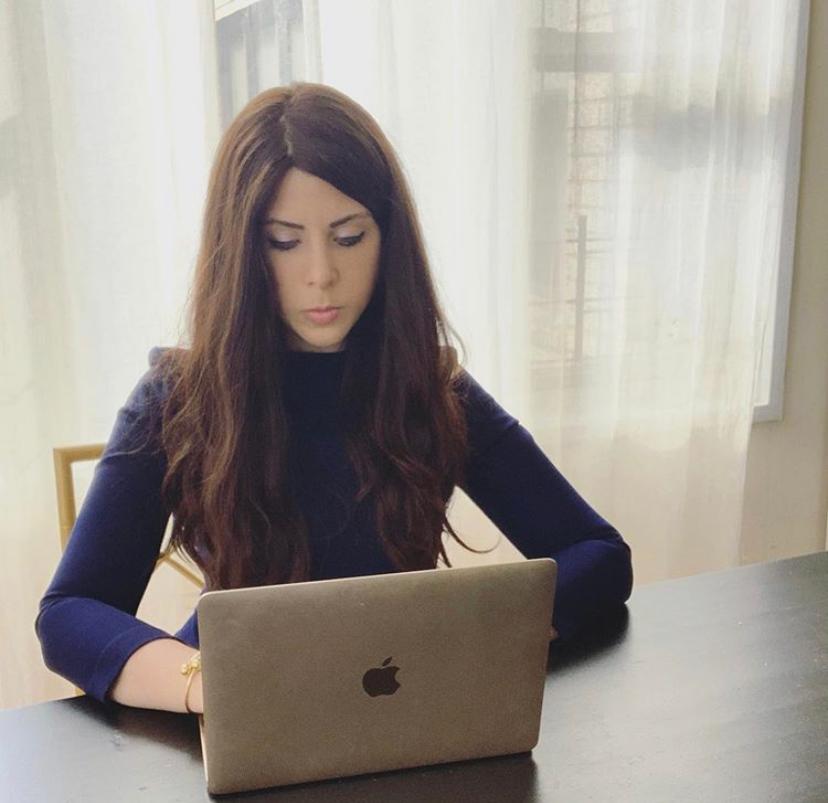It’s no secret that journalism is different than it used to be. Many magazines have disappeared and those that still exist maintain small staffs and compete for readers among the seemingly endless sites and articles around the web. That being said, the opportunities for writers are rich, and if it’s your dream, you have every ability to make it happen. “We need more people doing this work,” Avital Chizhik-Goldschmidt, a journalist formerly for The Forward, says. (Her new role is still to be announced—stay tuned!)
After years of experience pushing through a competitive industry and succeeding in getting her work published in Haaretz, Tablet and The New York Times, to name a few, she’s sharing her tips with other aspiring journalists. Read on, then forge ahead to get that byline!
1. Push past the “nos.”
“It’s a lot of rejection,” Avital explains. Most people get ahead in the journalism world through connections. Knowing the right person, or really, any person, can push your resume to the top of the pile.
“Every path to success is paved with disappointment,” Avital shares. “I was rejected from so many jobs. I was aggressive for more than five years trying to break in and it was a bit soul-crushing. I didn’t have a network to reach out to and that was hard.”
Eventually, she explains, you just have to stick with it and the job will come, no matter how long it takes. “If you continue to write and build your portfolio online (through freelance writing or any other related projects) you will get recruited for a job. It’s a harder path, but if you persevere, it can happen.”
2. Don’t be afraid of missteps.
Avital did get a prestigious summer internship at a publication, but as an unpaid intern, she needed to be selective about the work she was doing to make sure she would get the most out of it. “My parents weren’t able to support me,” she explains. “So, I had to get a job as well.”
At the internship, she spent her first day designing a flyer, a task she didn’t find fulfilling or something that would help her achieve her goal. While work may be unexciting at the beginning of an internship, as interns are often given tedious tasks, Avital ultimately decided it wasn’t worth her time, so she left the job. Sometimes, you just know in your gut that a position isn’t right for you, and if that’s the case, it’s okay to leave. It doesn’t mean you’re throwing away your dreams forever.
3. Carve out a freelance niche.
“Freelancing is a really good entry point into eventually landing a job,” Avital explains. She suggests pitching to a variety of places, ideally in a certain niche, or beat, that you can own. Examples of this could include fashion, food, Jewish culture, politics, technology, etc. but really, the possibilities are endless. Develop a social media presence for yourself that only further contributes to your skill and expertise. If you do carve a niche, you will be able to differentiate yourself from other writers. If you’re more of a generalist, pursuing a few key categories will also help boost your portfolio and open up possibilities.
If you’re stuck on where to break in when it comes to freelancing, don’t be afraid to cold pitch editors. “Everything I’ve ever done has been through a cold pitch,” Avital explains. “I’ve never had an ‘in’ anywhere.” She suggests poking around different publications, as they often have open email addresses to submit pitches. You can also guess an editor’s email address by looking up the format of that publication’s emails. For example, if you see that The New York Times has an editor listed with their first name [dot] last name [at] NewYorkTimes.com, you can probably figure out any other editor of interest by using the same format.
“I spent a lot of time researching that, collecting contacts and pitching,” she shares. “A small fraction of the pitches are accepted, but doing this also helps build a rapport. You get to know the editor who often will reply with feedback even if something doesn’t work out. Sometimes, they’ll even say to reach out again in a few months if it’s not the right time.”

4. Read as much as you can.
Feeling the writer’s block? “Reading excellent writing will seep into you by osmosis,” she says. That doesn’t mean you have to read The New Yorker or The Economist, even novels and poetry can put this flow or rhythm in your brain to help get the wheels turning and the words flowing through your fingertips.
5. Take risks.
Avital discussed in her profile piece that she landed a job with Haaretz after writing a letter to the editor in response to an editorial he had published. While it was “chutzpadik,” (audacious), she says, he was impressed with it, so much so that he gave her a reporting job. It’s further proof that you never know where that first big break will come from.
Avital stresses the importance of pushing through the challenge in the hopes of cultivating new, great writers. “We specifically need young female journalists doing this work,” she says. “Young women are often at the forefront of societal challenges and have the finger on the pulse of the problems facing communities, but rarely do they have the platforms, the training and the support to speak up or uncover those very issues. Writing for a media outlet that isn’t afraid to look at problems and say, ‘How can we fix this?’ is so important. That’s the only way to create change, especially in our own communities.”









